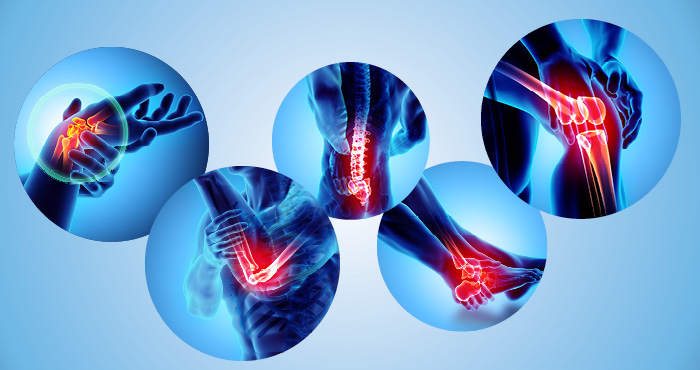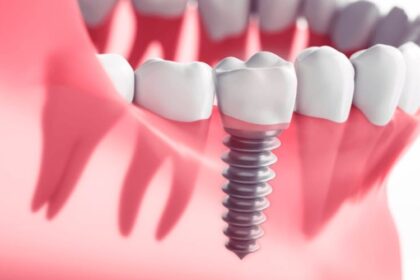Pain is the body’s natural response to injury or illness, but not all pain is the same. Understanding the differences between chronic pain and acute pain is crucial in diagnosing, managing, and treating these conditions effectively. In this article, we explore the causes, symptoms, treatment options, and coping strategies for both types of pain.
What Is Pain? A Brief Overview
Pain is a protective mechanism that alerts the body to potential harm. It can vary in duration, intensity, and underlying cause. Pain can generally be categorized into two main types:
- Acute Pain: Short-term, sudden onset
- Chronic Pain: Long-lasting, persists for months or even years
Acute Pain: Fast-Acting and Temporary
🔹 Definition and Duration
Acute pain typically occurs suddenly and has a specific, identifiable cause. It usually lasts less than 3 to 6 months and goes away once the underlying issue is treated.
🔹 Common Causes of Acute Pain
- Surgical procedures
- Bone fractures
- Dental work
- Burns or cuts
- Labor and childbirth
- Infections or inflammation
🔹 Symptoms of Acute Pain
- Sharp, stabbing, or throbbing sensation
- Localized discomfort
- Swelling, redness, or bruising
- Temporary and improves with healing
🔹 Treatment for Acute Pain
Medical treatments:
- Over-the-counter (OTC) pain relievers like acetaminophen or ibuprofen
- Prescription medications (for more severe cases)
- Ice or heat therapy
- Rest and elevation
- Physical therapy (post-injury or post-surgery)
Chronic Pain: Persistent and Complex
🔹 Definition and Duration
Chronic pain lasts beyond the normal healing time, typically more than 12 weeks, and may exist even without an obvious cause or injury.
🔹 Common Causes of Chronic Pain
- Arthritis
- Fibromyalgia
- Migraines or tension headaches
- Neuropathy (nerve damage)
- Cancer-related pain
- Lower back pain
- Post-surgical complications
🔹 Symptoms of Chronic Pain
- Constant dull ache or burning sensation
- Sleep disturbances
- Mood changes like depression or anxiety
- Fatigue
- Decreased mobility or flexibility
🔹 Treatment for Chronic Pain
Medical interventions:
- Prescription medications (opioids, antidepressants, anticonvulsants)
- Nerve blocks or injections
- TENS (Transcutaneous Electrical Nerve Stimulation) therapy
- Surgery (in select cases)
Alternative & lifestyle treatments:
- Physical therapy or chiropractic care
- Acupuncture
- Cognitive Behavioral Therapy (CBT)
- Mindfulness and meditation
- Regular low-impact exercises
- Diet changes and hydration
Key Differences Between Chronic and Acute Pain
| Feature | Acute Pain | Chronic Pain |
|---|---|---|
| Onset | Sudden | Gradual or persistent |
| Duration | Less than 3–6 months | More than 12 weeks |
| Cause | Easily identifiable | May or may not be known |
| Treatment Goal | Cure the underlying cause | Manage symptoms, improve life quality |
| Emotional Impact | Less likely | High, often leads to anxiety/depression |
Why Correct Diagnosis Matters
A correct diagnosis ensures:
- Effective treatment planning
- Prevention of long-term complications
- Proper use of medications and therapies
- Improved quality of life for the patient
Misdiagnosing chronic pain as acute can lead to ineffective short-term treatments, while ignoring acute pain may result in delayed healing or worsening of the condition.
Multidisciplinary Approach to Pain Management
For chronic conditions especially, a team-based approach yields better outcomes. This may include:
- Pain specialists
- Physical therapists
- Psychologists
- Dietitians
- Primary care physicians
Combining physical, psychological, and medical therapies improves pain control and emotional well-being.
When to Seek Medical Help
You should consult a doctor if:
- Pain persists beyond a few weeks
- You experience unexplained weight loss, fever, or numbness
- Pain interferes with sleep or daily activities
- OTC medications do not provide relief
8 Frequently Asked Questions (FAQs)
1. What is the main difference between acute and chronic pain?
Acute pain is short-term and usually results from a specific injury or illness, while chronic pain persists for longer than 3 months and may not have a clear cause.
2. Can acute pain turn into chronic pain?
Yes, if acute pain is not treated properly or if healing is delayed, it can develop into chronic pain.
3. Is chronic pain a disease in itself?
Yes, chronic pain is considered a health condition that can affect both physical and mental health independently of its original cause.
4. Are opioids safe for chronic pain treatment?
Opioids can be used for chronic pain but are usually prescribed cautiously due to the risk of addiction and side effects.
5. Can lifestyle changes help in chronic pain management?
Yes, regular exercise, stress reduction, proper sleep, and a healthy diet significantly help in reducing chronic pain symptoms.
6. Is surgery a solution for both chronic and acute pain?
Surgery is generally more common for acute issues (e.g., fractures) but may be considered for chronic pain in severe or non-responsive cases.
7. What role does mental health play in chronic pain?
Mental health is deeply connected; chronic pain can lead to depression and anxiety, and treating these conditions often reduces pain intensity.
8. How is pain measured or diagnosed?
Doctors use patient-reported symptoms, physical exams, imaging (X-rays, MRIs), and sometimes psychological assessments to diagnose the type and cause of pain.
Conclusion
Understanding the difference between chronic and acute pain is essential for timely and effective treatment. While acute pain typically resolves with appropriate medical care, chronic pain requires a more comprehensive, long-term strategy involving both physical and mental health approaches. If you’re experiencing persistent or severe pain, don’t ignore it—early diagnosis and treatment can make all the difference.









